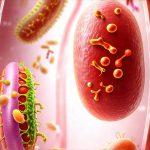The pursuit of optimal health often leads individuals down the path of dietary changes, frequently adopting popular diets promising rapid weight loss, increased energy, or improved well-being. These diets, ranging from ketogenic plans to intermittent fasting, paleo regimens to vegan lifestyles, have become ubiquitous in modern society, fueled by social media trends and celebrity endorsements. While many offer potential benefits for some individuals, the impact of these often restrictive approaches on digestive health is a growing concern. The digestive system is an incredibly complex ecosystem, meticulously balanced to process food and absorb nutrients. Sudden or drastic alterations to dietary habits can disrupt this delicate balance, leading to a variety of uncomfortable symptoms and potentially long-term health consequences.
It’s crucial to understand that “popular” doesn’t necessarily equate to “healthy for everyone.” What works exceptionally well for one person might be detrimental to another, largely due to individual variations in gut microbiome composition, pre-existing digestive conditions, and overall lifestyle factors. Furthermore, many popular diets emphasize elimination of entire food groups, which can inadvertently lead to nutrient deficiencies or imbalances if not carefully managed with the guidance of a qualified healthcare professional. This article will explore how common dietary trends can impact the digestive system, highlighting potential pitfalls and offering insights into prioritizing gut health while pursuing nutritional goals. Considering [benefits-of-elimination-diets-for-diagnosis] can help you determine what’s right for your body.
The Impact of Restrictive Diets
Restrictive diets—those eliminating significant food groups like carbohydrates, fats, or entire categories such as dairy or gluten—can profoundly affect the digestive process. Our guts thrive on diversity. A wide range of dietary fiber sources fuels a diverse microbiome, which in turn supports optimal digestion and overall health. When we severely limit food choices, we inadvertently starve certain beneficial bacteria populations, leading to dysbiosis – an imbalance within the gut ecosystem. This can manifest as bloating, gas, altered bowel habits (constipation or diarrhea), and even increased intestinal permeability—often referred to as “leaky gut.”
The elimination of fiber is a particularly common issue in restrictive diets, especially those focused on low-carbohydrate intake like ketogenic diets. Fiber isn’t just about regularity; it’s essential for producing short-chain fatty acids (SCFAs) during fermentation by gut bacteria. SCFAs are vital energy sources for colon cells and play crucial roles in reducing inflammation and bolstering the immune system. Without adequate fiber, these beneficial processes are compromised. Moreover, rapid changes to dietary fiber intake—either increases or decreases—can overwhelm the digestive system, leading to discomfort and disruption.
Beyond fiber, eliminating food groups can also remove essential prebiotics – non-digestible fibers that act as food for beneficial gut bacteria. Prebiotics found in foods like onions, garlic, asparagus, and bananas help nourish a healthy microbiome, while their absence can hinder microbial diversity and function. It’s important to note that even seemingly “healthy” eliminations, such as gluten for those without celiac disease or intolerance, can sometimes do more harm than good by unnecessarily restricting dietary variety and potentially impacting gut health. You should also be aware of [are-lectins-a-real-digestive-concern] when considering elimination diets.
Keto Diets & Digestive Distress
The ketogenic diet, characterized by very low carbohydrate intake and high fat consumption, presents unique challenges for digestive health. While effective for some in weight management, its restrictive nature often leads to significant changes in the gut microbiome. The reduction in carbohydrates drastically reduces the fuel source for many beneficial bacteria that thrive on complex carbohydrates and fiber, potentially leading to a decrease in microbial diversity.
- Reduced fiber intake is almost inevitable with keto, exacerbating SCFA production issues mentioned earlier.
- Increased fat consumption, while central to the diet’s mechanism, can also be difficult for some individuals to digest, resulting in symptoms like bloating, diarrhea, or abdominal discomfort. Bile acid production and utilization are crucial for fat digestion, and those with compromised gallbladder function may struggle on a high-fat diet.
- Constipation is a frequent complaint among those following ketogenic diets, due to both reduced fiber intake and altered gut motility.
Successfully navigating a keto diet (if chosen) requires careful planning to incorporate low-carb fiber sources like leafy greens and non-starchy vegetables, as well as ensuring adequate hydration and potentially supplementing with electrolytes to mitigate digestive side effects. However, it’s crucial to consider whether the potential benefits outweigh the risks for individual digestive health. Learning about [the-benefits-of-peppermint-oil-for-digestive-health] can also help soothe symptoms that may arise from dietary changes.
Intermittent Fasting & Gut Rhythm Disruption
Intermittent fasting (IF), gaining popularity for its purported metabolic benefits, involves cycling between periods of eating and voluntary fasting. While IF can be a beneficial practice for some, prolonged or poorly managed fasting schedules can disrupt the natural rhythms of the digestive system. Our guts operate on a circadian rhythm – an internal clock that regulates various physiological processes including digestion, nutrient absorption, and microbiome activity.
- Irregular eating patterns associated with certain IF protocols (e.g., extended water fasts) can throw off this rhythm, leading to alterations in gut motility and enzyme production.
- The prolonged periods of inactivity in the digestive system during fasting may also affect the composition of the gut microbiome, potentially favoring less desirable bacterial populations.
- Reintroducing food after a prolonged fast can overwhelm the digestive system, causing bloating, gas, or diarrhea as the gut attempts to regain its functionality.
A more moderate approach to IF, focusing on consistent eating windows and prioritizing nutrient-dense foods during feeding periods, may be better tolerated by the digestive system. It’s also vital to listen to your body’s signals and adjust fasting schedules accordingly. Maintaining [the-importance-of-regular-meals-for-digestive-health] is often more beneficial than restrictive practices.
Vegan/Vegetarian Diets & Nutrient Absorption
While generally considered healthy, vegan and vegetarian diets require careful attention to ensure adequate nutrient intake and optimal digestion. The emphasis on plant-based foods can be incredibly beneficial for gut health due to the abundance of fiber and prebiotics. However, certain aspects of these diets can present challenges:
- Plant cell walls contain phytic acid, which can inhibit the absorption of minerals like iron, zinc, and calcium. Proper food preparation techniques such as soaking, sprouting, or fermenting can help reduce phytic acid levels.
- Vitamin B12 is primarily found in animal products, requiring supplementation for vegans to prevent deficiency. Deficiency can affect digestive function and overall health.
- The high fiber content of plant-based diets, while generally beneficial, can also cause bloating or gas if introduced too quickly or if individuals aren’t adequately hydrated. Gradual increases in fiber intake are key.
It’s important to be aware of [what-to-watch-for-with-packaged-health-foods], even within a plant based diet.
Ultimately, the impact of popular diets on digestive health is highly individual. It’s not about demonizing any particular diet but rather recognizing that one size doesn’t fit all. Prioritizing a balanced, diverse, and nutrient-rich eating pattern tailored to your specific needs and sensitivities remains the cornerstone of good gut health. Consulting with a registered dietitian or healthcare professional can provide personalized guidance and support in navigating dietary changes safely and effectively. Be mindful if [are-supplements-a-risk-for-sensitive-digestion] when adding supplements to balance deficiencies, and always consult your doctor before doing so. Finally, be sure to consider whether [are-non-dairy-creamers-safe-for-sensitive-stomachs] if you are choosing a plant based alternative.


















